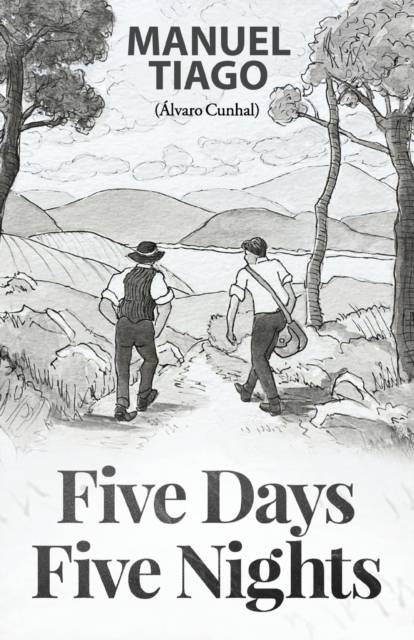
- Retrait gratuit dans votre magasin Club
- 7.000.000 titres dans notre catalogue
- Payer en toute sécurité
- Toujours un magasin près de chez vous
- Retrait gratuit dans votre magasin Club
- 7.000.0000 titres dans notre catalogue
- Payer en toute sécurité
- Toujours un magasin près de chez vous
Description
The Portuguese Communist Party is, proportionate to the size of the country's population, one of the largest in the world, certainly in the capitalist world. It must have come as something of a surprise for Portuguese readers to learn that its longtime leader, Alvaro Cunhal, had made a sideline career for himself as a neorealist fiction writer. This book is the first to appear in English. International Publishers, renowned for its historic catalogue of publications of non-fiction, including Marxist theoretical studies, fiction, memoir and poetry, is proud to present this unusual novella as a long overdue expression of gratitude for Alvaro Cunhal's self sacrificing leadership of the Portuguese Communists during most of the half-century of fascism in his land.
Stylistically, Five Days, Five Nights approximates something of the 1940s and '50s noir writers' and filmmakers' hyperrealist sensibilities, though any direct influence on the writer is not likely, for Cunhal wrote this book while imprisoned in Portugal in the 1950s. He was able to slip it past the censors, who saw little specifically political in it, merely the story of an emigrant escaping the country, a common occurrence at the time. Notably, there is no reference to the Party as such, though readers are welcome to infer its presence in the background.
The manuscript of this novella was found in the archives of the Forte de Peniche, where Cunhal had been imprisoned. Cunhal had left it behind when he escaped on January 3, 1960, although he did take with him the manuscript to another, much longer and more specifically political novel, Até Amanhã, Camaradas. After the 25th of April 1974 Revolution that brought an end to fascism in Portugal, the military
officers in charge of the fort returned the manuscript to Cunhal, and he published it in 1975 under the pseudonym Manuel Tiago, with a fictitious indication that it had been found in the "author's" papers after his death (an explanation he also used for Até Amanhã, Camaradas). At the time the true authorship of these books was known only to the Party leadership. Only later in life, in 1994, did Cunhal acknowledge that he was "Manuel Tiago," pseudonymous author of several books (whose titles are noted in the biography of the
author).
Cunhal had obviously heard many stories of his comrades' clandestine emigration across the border. Possibly, too, there may be some autobiographical content to the story given the author's involvement in the Portuguese student movement in Lisbon in the very early years of António Salazar's Estado Novo.
Estado Novo or-- "New State" was a version of fascism and a setting of the story in the early 1930s would seem probable. Furthermore, it seems to predate the Spanish Civil War (1936-39) and Francisco Franco's subsequent fascist regime, if we are to accept the logic of an escape over the border from the oppressive Portugal to an untroubled Spain as described in the book. However, If we understand the story as existing outside of a specific time, involving archetypal situations, relationships and circumstances, then to that extent it achieves a certain universality, standing in for similar, parallel conditions almost anywhere in the world at any time.
In the final analysis, Five Days, Five Nights surely was written to remind readers not only of the sacrifices made by fascism's resisters, but of the loss of creativity and intelligence that Portugal suffered due to fascism's
erosion of talented, hardworking citizens.
Spécifications
Parties prenantes
- Auteur(s) :
- Editeur:
Contenu
- Nombre de pages :
- 84
- Langue:
- Anglais
Caractéristiques
- EAN:
- 9780717807895
- Date de parution :
- 11-08-20
- Format:
- Livre broché
- Format numérique:
- Trade paperback (VS)
- Dimensions :
- 140 mm x 216 mm
- Poids :
- 117 g

Les avis
Nous publions uniquement les avis qui respectent les conditions requises. Consultez nos conditions pour les avis.






